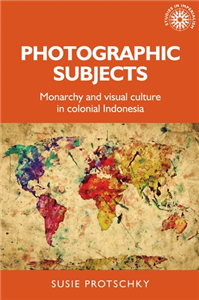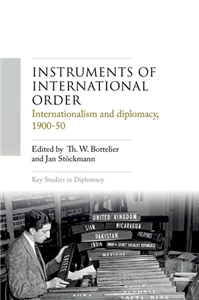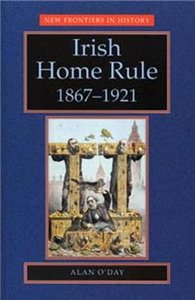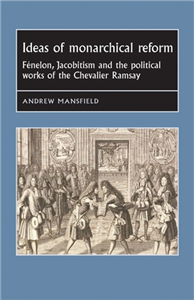Your Search Results
-
Promoted Content
-
Promoted ContentBusiness, Economics & LawNovember 2024
The Island Book of Records Volume II
1969-70
by Neil Storey
The second volume of this highly collectable series, covering the pivotal years of 1969-70. The Island Book of Records Volume II documents the years 1969-70, during which Island sought to build on its success with the Spencer Davis Group by seeking out new British rock talent. By the end of the period, Island was emerging as a major British label, one that could boast releases from Jethro Tull, Nick Drake, King Crimson, John and Beverley Martyn, Fairport Convention and Cat Stevens. Featuring material from recent interviews and from media interviews of the time, and including a comprehensive discography of 45s, The Island Book of Records Volume II is lavishly illustrated with gig adverts (very many at venues that no longer exist), concert tickets, flyers, international LP variants, labels, LP and 45 adverts and other ephemera collector's dream.
-
 Trusted Partner
Trusted Partner
-
 Trusted Partner
Humanities & Social SciencesMay 2009
Trusted Partner
Humanities & Social SciencesMay 2009Direct rule and the governance of Northern Ireland
by Derek Birrell
This is the first comprehensive study of direct rule as the system of governance which operated in Northern Ireland for most of the period between 1972 and 2007. The major institutions of governance are described and examined in detail, including the often neglected sectors of the role of the Westminster parliament, the civil service, local government, quangos, ombudsmen offices, cross-border structures and the public expenditure process. The book explains how the complex system covering transferred, reserved and excepted functions worked and provided viable governance despite political violence, constitutional conflict and political party disagreements. In addition, a comparison is drawn between direct rule and devolution, analysing both the positive and negative impact of direct rule, as well as identifying where there has been minimal divergence in processes and outcomes. It will prove an invaluable reference source on direct rule and provide a comparative basis for assessing devolution for students of public administration, government, politics, public policy and devolution. ;
-
 Trusted Partner
Humanities & Social SciencesJanuary 2015
Trusted Partner
Humanities & Social SciencesJanuary 2015The reign of Richard II
From minority to tyranny 1377–97
by Alison McHardy
The long-awaited prequel to Chronicles of the revolution covers the first twenty years (1377-97) of Richard II's reign. This richly-documented period offers exceptional opportunities and challenges to students, and the editor has selected material from a wide range of sources: well-known English chronicles, foreign chronicles and legal, administrative and financial records. These are arranged chronologically to form a coherent narrative of the reign. Clear and lively commentary and notes enable readers to make the fullest use of each document. The introduction describes the complex domestic and international situation which confronted the young king and offers guidance on the strengths and weaknesses of the reign's leading chronicles. The dramatic and diverse politics of the reign of Richard II make this the ideal special subject and an accessible, affordable, student-friendly documentary history of Richard II's reign has long been needed. This book is designed to fill that gap.
-
 Trusted Partner
Humanities & Social SciencesJanuary 2013
Trusted Partner
Humanities & Social SciencesJanuary 2013Tyrants of Sicily by Hugo Falcandus
by Graham Loud, Thomas Wiedemann
This book is our principal source for the history of the Kingdom of Sicily in the troubled years between the death of its founder, King Roger, in February 1154 and the spring of 1169. It covers the reign of Roger's son, King William I, known to later centuries as 'the Bad', and the minority of the latter's son, William II 'the Good'. The book illustrates the revival of classical learning during the twelfth-century renaissance. It presents a vivid and compelling picture of royal tyranny, rebellion and factional dispute at court. Sicily had historically been ruled by tyrants, and that the rule of the new Norman kings could be seen, for a variety of reasons, as a revival of that classical tyranny. A more balanced view of Sicilian history of the period 1153-1169 has been provided as an appendix to the translation in the section of the contemporary world chronicle ascribed to Archbishop Romuald II of Salerno, who died in April 1181. In particular the chronicle of Romuald enables us to see how the papal schism of 1159 and the simultaneous dispute between the German Emperor Frederick Barbarossa and the north Italian cities affected the destiny of the kingdom of Sicily. In contrast to the shadowy figure of Hugo Falcandus, the putative author of the principal narrative of mid-twelfth-century Sicilian history, Romuald II, Archbishop of Salerno 1153-1181, is well-documented.
-
 Trusted Partner
Humanities & Social SciencesJune 2020
Trusted Partner
Humanities & Social SciencesJune 2020Gentry culture and the politics of religion
by Richard Cust, Peter Lake
-
 Trusted Partner
Humanities & Social SciencesJuly 2021
Trusted Partner
Humanities & Social SciencesJuly 2021Photographic subjects
Monarchy and visual culture in colonial Indonesia
by Susie Protschky
Winner of the ASAA mid-career book prize in Asian Studies 2020 and joint winner of the 2020 Royal Studies Journal Book Prize Photographic subjects examines photography at royal celebrations during the reign of Queens Wilhelmina (1898-1948) and Juliana (1948-80), a period spanning the zenith and fall of Dutch rule in Indonesia. It is the first monograph in English on the Dutch monarchy and the Netherlands' modern empire in the age of mass and amateur photography. Photographs forged imperial networks, negotiated relations of recognition and subjecthood between Indonesians and Dutch authorities, and informed cultural modes of citizenship at a time of accelerated colonial expansion and major social change in the East Indies/Indonesia. This book advances methods in the uses of photographs for social and cultural history and provides a new interpretation of Queens Wilhelmina and Juliana as imperial monarchs.
-
 Trusted Partner
June 2024
Trusted Partner
June 2024Rule of the Aurora King
Die Artefakte von Ouranos 2
by Tuli, Nisha J.
Aus dem amerikanischen Englisch von Paula Telge
-
 Trusted Partner
Humanities & Social SciencesJune 2009
Trusted Partner
Humanities & Social SciencesJune 2009Design and popular entertainment
by Christopher Breward, Christopher Frayling, Emily King, Bill Sherman
Design and Popular Entertainment offers a selection of nine essays that examine the range of design for popular entertainment, from theatre and film, to television and radio. Investigating entertainment design from the late nineteenth century to the 1960s, the book is divided into two sections. The first addresses the 'hardware' of popular entertainment, in other words the objects through which images, sound and performance are transmitted. The second explores the construction of cinematic and televisual imagery and the design of objects for the screen, the 'software' of entertainment. In so doing it offers important insights into this little explored aspect of design. Topics covered by the collection include the design of theatrical lighting and stage sets, cinema and radio design, the representation of designers within film, and the relationship between design and television. The book's concentration on the 1950s and 1960s reflects the profound changes in modes of entertainment that took place during that period, in particular the spread of television, which not only attracted a huge popular audience but also stimulated experimental designing approaches and thinking. With particular focus on the way that both the objects and the construction of entertainment have altered audience's experience, the essays present a novel approach to the subject. This book will be of particular interest to students and teachers working in design and cultural history as well as film and theatre studies. ;
-
 Trusted Partner
Humanities & Social SciencesMarch 2017
Trusted Partner
Humanities & Social SciencesMarch 2017Silk and empire
by Brenda King
In this book, Brenda M. King challenges the notion that Britain always exploited its empire. Creativity, innovation and entrepreneurship were all part of the Anglo-Indian silk trade and were nurtured in the era of empire through mutually beneficial collaboration. The trade operated within and without the empire, according to its own dictates and prospered in the face of increasing competition from China and Japan. King presents a new picture of the trade, where the strong links between Indian designs, the English silk industry and prominent members of the English the arts and crafts movement led to the production of beautiful and luxurious textiles. Lavishly illustrated, this book will be of interest to those interested in the relationship between the British Empire and the Indian subcontinent, as well as by historians of textiles and fashion.
-
 Trusted Partner
Humanities & Social SciencesNovember 2024
Trusted Partner
Humanities & Social SciencesNovember 2024Instruments of international order
Internationalism and diplomacy, 1900-50
by Thomas W. Bottelier, Jan Stöckmann
During the first half of the twentieth century, world politics was reshaped in pursuit of a new international order. The ideological foundations of the 'new diplomacy' (and its fate during the interwar period) are well known. This book instead examines the practices of internationalism and diplomacy from the First Hague Conference of 1899 to the aftermath of the Second World War. By focusing on these practices, such as disarmament regimes or public diplomacy, and their use as instruments to build international order(s), it emphasises the constructed, contested, and experimental character of what subsequently became a standard repertoire of international politics. Essays from a range of interdisciplinary scholars address well-established principles such as self-determination, and also less prominent practices such as small arms control or parliamentary inquiry. The book makes a major contribution to the growing historiography on twentieth-century internationalism.
-
 Trusted Partner
Humanities & Social SciencesJune 2026
Trusted Partner
Humanities & Social SciencesJune 2026Instruments of international order
Internationalism and diplomacy, 1900-50
by Th. W. Bottelier, Jan Stöckmann
During the first half of the twentieth century, world politics was reshaped in pursuit of a new international order. The ideological foundations of the 'new diplomacy' (and its fate during the interwar period) are well known. This book instead examines the practices of internationalism and diplomacy from the First Hague Conference of 1899 to the aftermath of the Second World War. By focusing on these practices, such as disarmament regimes or public diplomacy, and their use as instruments to build international order(s), it emphasises the constructed, contested, and experimental character of what subsequently became a standard repertoire of international politics. Essays from a range of interdisciplinary scholars address well-established principles such as self-determination, and also less prominent practices such as small arms control or parliamentary inquiry. The book makes a major contribution to the growing historiography on twentieth-century internationalism.
-
 Trusted Partner
1986
Trusted Partner
1986Der Triumph des Todes
Und andere Gespenstergeschichten
by H R Wakefield, Rein A Zondergeld, Jörg Krichbaum
-
 Trusted Partner
Humanities & Social SciencesJanuary 2017
Trusted Partner
Humanities & Social SciencesJanuary 2017The divorce of King Lothar and Queen Theutberga
Hincmar of Rheims's De divortio
by Rachel Stone, Charles West
In the mid-ninth century, Francia was rocked by the first royal divorce scandal of the Middle Ages: the attempt by King Lothar II of Lotharingia to rid himself of his queen, Theutberga and remarry. Even 'women in their weaving sheds' were allegedly gossiping about the lurid accusations made. Kings and bishops from neighbouring kingdoms, and several popes, were gradually drawn into a crisis affecting the fate of an entire kingdom. This is the first professionally published translation of a key source for this extraordinary episode: Archbishop Hincmar of Rheims's De divortio Lotharii regis et Theutbergae reginae. This text offers eye-opening insight both on the political wrangling of the time and on early medieval attitudes towards magic, penance, gender, the ordeal, marriage, sodomy, the role of bishops, and kingship.The translation includes a substantial introduction and annotations, putting the case into its early medieval context and explaining Hincmar's sometimes-dubious methods of argument.
-
 Trusted Partner
Humanities & Social SciencesNovember 2012
Trusted Partner
Humanities & Social SciencesNovember 2012Ending British rule in Africa
by Carol Polsgrove, Andrew Thompson, John Mackenzie
-
 Trusted Partner
Humanities & Social SciencesJuly 2009
Trusted Partner
Humanities & Social SciencesJuly 2009Ending British rule in Africa
by Carol Polsgrove, Andrew Thompson, John Mackenzie, Rebecca Mortimer
-
 Trusted Partner
Trusted Partner
-
 Trusted Partner
Humanities & Social SciencesAugust 1998
Trusted Partner
Humanities & Social SciencesAugust 1998Irish Home Rule
by Alan O'Day, Mark Greengrass
Irish Home Rule considers the pre-eminent issue in British politics during the late nineteenth and early twentieth-centuries. It is the first account to explain the various self-government plans, to place these in context and examine the motives for putting the schemes forward. The book distinguishes between moral and material home rulers, making the point that the first appealed especially to outsiders, some Protestants and the intelligentsia, who saw in self-government a means to reconcile Ireland's antagonistic traditions. In contrast, material home rulers viewed a Dublin Parliament as a forum of Catholic interests. This account appraises the home rule movement from a fresh angle, distinguishing it from the usual division drawn between physical force and constitutional nationalists It maintains that an ideological continuity runs from Young Ireland, the Fenians, the early home rulers including Isaac Butt and Charles Stewart Parnell, to the Gaelic Revivalists to the Men of 1916. These nationalists are distinguishable from material home rulers not on the basis of methods or strategy but by a fundamental ideological cleavage. ;
-
 Trusted Partner
Humanities & Social SciencesJanuary 2020
Trusted Partner
Humanities & Social SciencesJanuary 2020Ideas of monarchical reform
Fénelon, Jacobitism, and the political works of the Chevalier Ramsay
by Joseph Bergin, Andrew Mansfield, Penny Roberts, William G. Naphy
This book examines the political works of Andrew Michael Ramsay (1683-1743) within the context of early eighteenth-century British and French political thought. In the first monograph on Ramsay in English for over sixty years, the author uses Ramsay to engage in a broader evaluation of the political theory in the two countries and the exchange between them. At the beginning of the eighteenth century, Britain and France were on divergent political paths. Yet in the first three decades of that century, the growing impetus of mixed government in Britain influenced the political theory of its long-standing enemy. Shaped by experiences and ideologies of the seventeenth century, thinkers in both states exhibited a desire to produce great change by integrating past wisdom with modern knowledge.

























